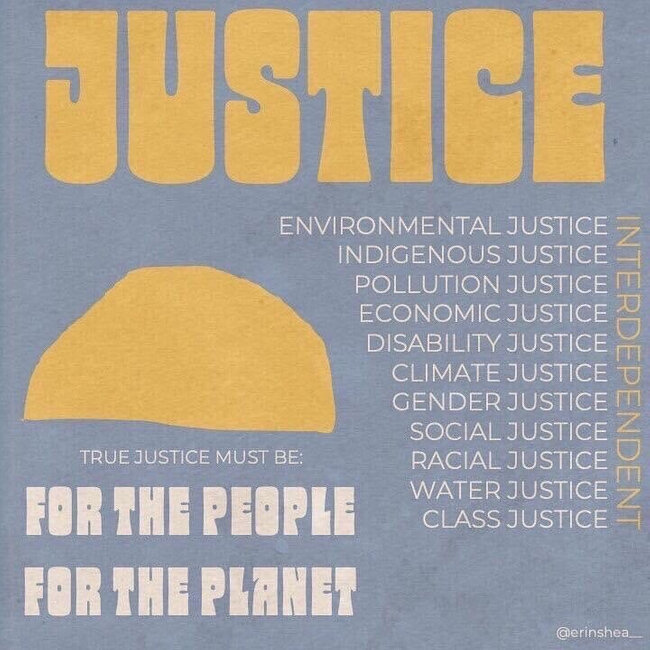Intersectional Environmentalism

Intersectional Environmentalism
By: Vanessa Mendoza, Edited: Nicki Patel | 9.16.20
Social justice, racial justice, climate activism, environmentalism, sustainability, the list goes on-and-on. We are used to seeing these words individually, however, a new phrase has taken form - intersectional environmentalism. This phrase packs a powerful punch by advocating for both the planet and people, and redefines environmentalism on a global and socioeconomic landscape. There is no sustainability without intersectionality and alliance of people and planet.
by @graphicsandgrain for Intersectional Environmentalist
Cofounders Diandra Marizet and Leah Thomas launched Intersectional Environmentalist as a social community organization amidst a pandemic and the global rise towards racial injustice. The tokened phrase is more than a term used to support people and the planet, it is a movement to dismantle the systems of oppression in the environmental movement. Both cofounders have built their individual platforms based on reshaping the culture around them by pursuing a life of sustainability and justice. Leah Thomas said Intersectional Feminism was the source of their inspiration for the popularized term in an interview with Greenmatters. Formed in 1989, the feminist movement was seen under a new lens when the phrase “Intersectional Feminism” came to be; described as a series of discriminatory experiences due to overlapping social identities such as race and gender[1].
Like that of feminism, racial injustices hold roots in the topic of environmentalism. When it comes to the numbers, there is a disproportionate amount of vulnerable communities exposed to unhealthy climates, identifying by age, poverty, and minority status as factors of susceptibility. By acknowledging that the climate crisis is a social crisis, we can begin to uplift and protect these marginalized communities. But how can we begin to change something that has been going on for decades? We begin the way you start any world-changing task: we take the first step to dismantle the system.
By @graphicsandgrain for Intersectional Environmentalist
When it comes to the world of fashion, the industry has been dotted, striped, and stamped with phrases like “eco-friendly,” “sustainable,” and “good for people and planet.” But are any of these phrases true and real? Well, it depends. Some brands believe in transparency, ethicality, and equality, while others use it as a power tool to greenwash their brand to appear as they do. This is where the essential and crucial role of the consumer comes into play—do your homework and ask questions. Are the manufacturers providing ethical and livable wages and safe working conditions? Are the people behind the brand receiving equal and fair treatment behind closed the doors? Don’t believe that quick and easy Google search. Also, know your source and make sure it is reputable. It is easy for a brand to have a person within the organization that covers their PR, but are they really sharing the true story and people behind the brand?
Cheap labor and abundant supply have been the standard for far too long in the fashion industry. By holding companies accountable for their role in protecting the environment and people, together, we can revolutionize the industry. By voting with your dollar, a consumer has the power to dismantle an entire ecosystem that impacts fashion, but trickle downs to every living being that is effected by the supply chain of creating a piece of garment.
We live in an ecosystem where we are all connected, people, planet and animals. Solving the climate crisis, or socioeconomic injustices are just pieces of the entire ecosystem that are detrimental for the survival of our globe. Intersectional environmentalism takes that ecosystem and helps us see the players in the game. If we as players don’t change the way we play the game, our ecosystem will collapse.
by @erinshea__ for Intersectional Environmentalist
Sources:
[1]Women, UN. “Intersectional Feminism: What It Means and Why It Matters Right Now.” Medium, Medium, 1 July 2020, medium.com/@UN_Women/intersectional-feminism-what-it-means-and-why-it-matters-right-now-7743bfa16757.
https://www.greenamerica.org/blog/factory-exploitation-and-fast-fashion-machine



